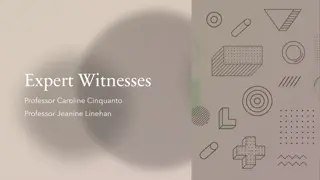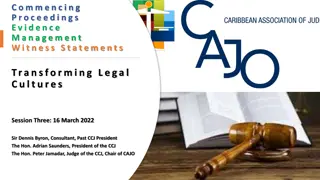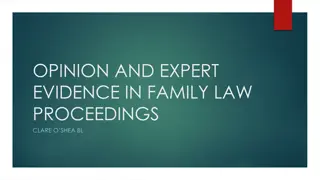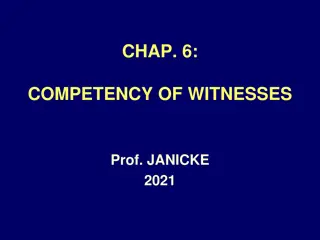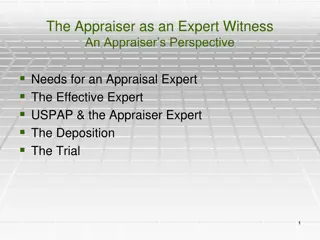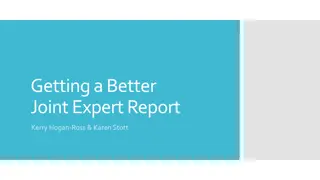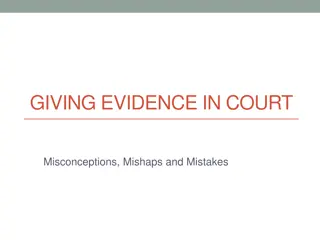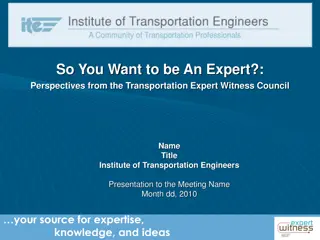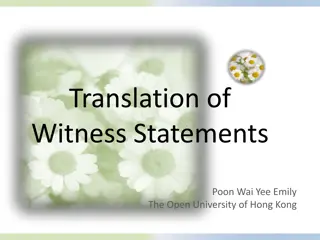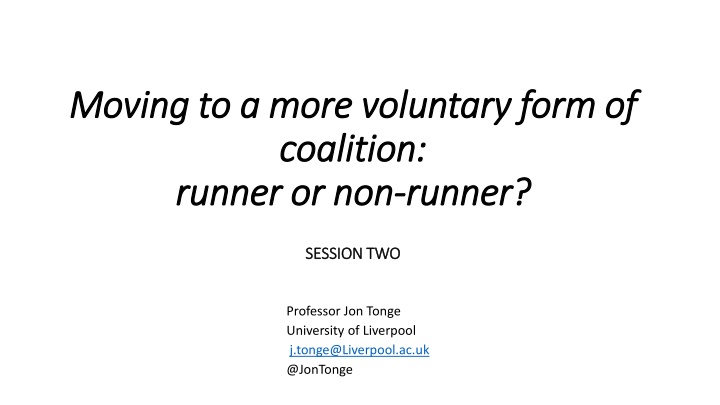
Pros and Cons of Voluntary Coalition in Northern Ireland
Explore the potential benefits and drawbacks of transitioning to a voluntary coalition system in Northern Ireland, analyzing factors like freedom for parties, government stability, representation concerns, and policy resolution. Discover the implications of moving away from mandatory coalitions and the challenges associated with such a shift, providing valuable insights into the political landscape of the region.
Download Presentation

Please find below an Image/Link to download the presentation.
The content on the website is provided AS IS for your information and personal use only. It may not be sold, licensed, or shared on other websites without obtaining consent from the author. If you encounter any issues during the download, it is possible that the publisher has removed the file from their server.
You are allowed to download the files provided on this website for personal or commercial use, subject to the condition that they are used lawfully. All files are the property of their respective owners.
The content on the website is provided AS IS for your information and personal use only. It may not be sold, licensed, or shared on other websites without obtaining consent from the author.
E N D
Presentation Transcript
Moving to a more voluntary form of Moving to a more voluntary form of coalition: coalition: runner or non runner or non- -runner? runner? SESSION TWO SESSION TWO Professor Jon Tonge University of Liverpool j.tonge@Liverpool.ac.uk @JonTonge
Context: do we need to reform the system? Context: do we need to reform the system? The current system has been in place for 21 years and 64 days since December 1999 When the system has functioned, it has performed reasonably well in terms of legislation. E.g. Northern Ireland passed 137 Bills from 2007-2016 not far short of the 153 Bills passed by the Scottish Parliament BUT Of these 21 years, the institutions have been suspended/closed for 2,873 days (37% of the time). Only 2 Assembly terms have run the full course without early closure. Only 27% of people in Northern Ireland believe parties have cooperated well in the Assembly and Executive The system of Mandatory Coalition often gets the blame for these problems.
Voluntary Coalition: what are the pros? Voluntary Coalition: what are the pros? Parties have complete freedom: coalition of the willing positive programme for government and more collapse-proof Consolidates the prospects of a system of government and opposition and normal government. Would bring Northern Ireland into line with other devolved administrations. Addresses ever-longer periods to form an Executive (now extended to 24 weeks after an election). Most Assembly votes are taken via simple majority anyway (see the next slide) not via cross- community rules, so why not extend the voluntary alliances of voting to the Executive?
Conditions for change Conditions for change? ? Voluntary coalitions in Assembly votes anyway: 81% of votes are by simple majority Division votes by type, Northern Ireland Assembly, 1999-2000 to 2020-2021 660 700 600 500 400 300 200 145 100 10 0 Simple Majority Cross Community Parallel Consent
Voluntary Coalition: what are the cons? Voluntary Coalition: what are the cons? The public has not necessarily rejected the current system see the final three slides. Unstable and undemocratic if large popular parties are excluded? Could end up with at least one community unrepresented in government undermines legitimacy? Doesn t in itself resolve any policy issues. Would need to be accompanied by removal of all internal Executive vetoes. Does not eliminate potential for breakdown. Voluntarism of the arrangement may encourage walkouts less incentive to stay?
Qualified Voluntary Coalition: what are the pros? Qualified Voluntary Coalition: what are the pros? Cross-community requirement would ensure no political community is excluded from government, whilst still giving parties the space to negotiate amongst themselves and form a coalition of the willing Similar to voluntary coalition, it helps consolidate the prospects of a system of government and opposition and normal government. There could still be some safeguards/cross-community vetoes in the Executive Would also address ever-longer periods to form an Executive (now extended to 24 weeks after an election).
Qualified Voluntary Coalition: what are the cons? Qualified Voluntary Coalition: what are the cons? Could potentially be complicated: how do we ensure cross-community representation in the Executive? If quotas, too rigid? No quotas, potential for tokenism? Need to work out exactly what we mean by Qualified. Ensuring only unionists + nationalists in the Executive? Or unionists + nationalists + others ? What if a major political party is excluded? Unpopular? Still not an automatic solution for resolving policy issues. Not a silver bullet. Doesn t guarantee stability either.
Conditions for change? The Public Mood Conditions for change? The Public Mood - Support for principle of power-sharing endures. E.g. majority of unionists + nationalists + others wanted Stormont to return in 2019 and all three groups believe there should be unionists and nationalists in the Executive (Tonge et al. 2019) % total Unionist electors Nationalist electors Neither nationalist nor unionist ( other ) Agree/strongly agree nationalists and unionist must both be in the Executive 61 63 71 60 - But some public appetite for looking at improving the system?
Summary Summary Mandatory coalition system has worked for periods, but has also been blamed for instability and ministerial disputes. More voluntary forms of coalition could improve some things, but they come with their own set of drawbacks Current system: favours inclusivity but can be unstable Voluntary/qualified voluntary: favour coalition of the willing but could be less inclusive and do not offer a silver bullet.




